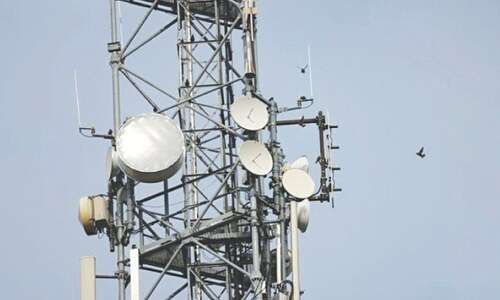The Pakistan government’s ambitious plan for rolling out 5G technology by April 2025 is under significant scrutiny due to multiple challenges, including policy gaps, economic constraints, and administrative hurdles. Consultants working with the Pakistan Telecommunication Authority (PTA) have identified key barriers that may impede the successful implementation of next-generation telecom services. The concerns raised by experts could delay the country’s 5G auction and hinder the overall advancement of the digital economy.
Challenges in the 5G Rollout Strategy
H1: Key Barriers to 5G Deployment in Pakistan
Pakistan’s path to 5G implementation faces several complex obstacles, and foreign consultants engaged by PTA have been tasked with identifying these issues. The National Economic Research Associates (NERA), a consultancy firm from the United States, recently provided their preliminary findings after conducting consultations with various stakeholders. These consultations, which were shared in a meeting led by Finance Minister Muhammad Aurangzeb, revealed the various challenges impeding the swift rollout of 5G technology in the country.
H2: Economic Constraints and Foreign Exchange Dependence
One of the most significant challenges identified is Pakistan’s dependence on foreign exchange for the auction of the 5G spectrum. According to the NERA report, many countries have transitioned to conducting spectrum auctions in local currency, which reduces the dependency on foreign exchange reserves. However, Pakistan is still reliant on foreign currency for its auctions, which could significantly limit competition and affect the pricing of the spectrum. The consultants suggest that this reliance on foreign currency could also hinder further investment in the telecom sector and delay the country’s transition to 5G.
H2: Insufficient Utilization of Existing Spectrum
Another issue raised by consultants is the underuse of existing telecom spectrum. Pakistan has not fully leveraged its current 4G spectrum, which has limited the growth potential of broadband services in the country. The lack of adequate infrastructure and the failure to maximize the use of the 4G spectrum could delay the rollout of 5G. This inefficiency indicates systemic issues within the telecommunication sector that need to be addressed before introducing the next-generation technology.
H3: Internet Restrictions and Regulatory Barriers
The administrative restrictions on internet services also emerged as a critical factor limiting the progress of 5G deployment in Pakistan. Internet restrictions and content censorship policies have been contentious issues in Pakistan, with various stakeholders criticizing these policies for stifling the growth of the digital economy. The consultants emphasized that these restrictions need to be minimized to encourage investment in the telecommunications sector. Moreover, Pakistan’s regulatory environment for telecom services needs to be reformed to foster growth and innovation.
The Government’s Commitment to Digital Transformation
H1: Focus on Digital Economy and Infrastructure Development
Despite these challenges, the Pakistan government remains committed to transforming the country’s digital infrastructure. Finance Minister Muhammad Aurangzeb highlighted the importance of digital integration as a central component of Pakistan’s economic transformation. The government recognizes that advancing digital connectivity is crucial for achieving socio-economic development and sustainable growth.
Aurangzeb noted that the government aims to enhance connectivity to ensure the mass adoption of emerging digital technologies. This digital transformation is not just about rolling out 5G; it is also about improving broadband infrastructure, fostering innovative applications, and ensuring that digital solutions reach all sectors of society. The government’s goal is to harness the potential of the digital economy to drive economic activities and contribute to the achievement of the United Nations’ Sustainable Development Goals (SDGs).
H2: Consultation with Stakeholders and Industry Experts
As part of its strategy, the government engaged NERA to assess the telecom market, consult with stakeholders, and provide policy recommendations. This extensive consultation process aims to create a roadmap for the successful rollout of 5G in Pakistan. The consultants are expected to submit a final report that outlines a balanced approach to spectrum auction pricing, considering both the economic constraints and the need to encourage competition and investment in the sector.
The consultants are exploring various models for the spectrum auction, which will allow the government to maximize its foreign exchange earnings while still fostering a competitive environment. A crucial component of the model is to ensure that the telecom sector is ready to handle the demands of next-generation technology and that the auction is conducted in a transparent and efficient manner.
Addressing Industry Concerns and Regulatory Reforms
H1: Optimizing Spectrum Use and Supporting Growth
Telecom operators in Pakistan have voiced concerns about the current regulatory environment, which they argue is unfriendly to growth and expansion. Cellular operators have expressed frustration with the underutilization of the existing 4G spectrum, which they believe is due to the regulatory and economic challenges in the country. These challenges include limited access to financial resources, high regulatory costs, and an unclear roadmap for future technological upgrades.
To address these concerns, the government must prioritize regulatory reforms that encourage growth and investment in the telecom sector. This includes reducing bureaucratic hurdles, simplifying processes for spectrum auctions, and providing clear guidelines for telecom operators to upgrade their infrastructure. Ensuring that existing spectrum is fully utilized before moving to 5G will be essential for a smooth transition.
H2: Minimizing Content and Traffic Restrictions
One of the most pressing issues affecting the telecom sector is the heavy-handed regulation of internet traffic and content. Telecom operators have repeatedly complained about the restrictive policies that limit their ability to expand broadband services. These restrictions also affect their ability to provide competitive and innovative digital services to consumers.
The consultants suggested that minimizing such restrictions would create a more conducive environment for the rollout of 5G. If the government is serious about the digital economy, it must focus on reducing internet restrictions and allowing greater freedom for content providers. This would not only encourage investment but also stimulate innovation in the sector, which is essential for the growth of the digital economy.
Moving Forward: What Needs to Be Done?
H1: Steps Towards Successful 5G Rollout
As the target date for the 5G auction in Pakistan approaches, it is clear that the government must address several critical challenges to ensure the successful rollout of next-generation technology. These include:
- Policy Reforms: The government must work to simplify the regulatory framework and minimize barriers that hinder the growth of the telecom sector.
- Economic Solutions: Finding a balance between foreign exchange earnings and local currency-based auctions is crucial for encouraging competition and investment.
- Maximizing Spectrum Use: It is essential to ensure that the existing spectrum, including 4G, is fully utilized before rolling out 5G technology.
- Reducing Internet Restrictions: Removing content and traffic restrictions will help create a more attractive environment for investment and technological innovation.
Frequently Asked Questions (FAQs)
1. What are the key barriers to 5G rollout in Pakistan? The main barriers include reliance on foreign exchange for spectrum auctions, underuse of existing spectrum, and internet restrictions that stifle growth in the telecom sector.
2. When is the 5G spectrum auction expected to take place? The government has set April 2025 as the target date for the 5G spectrum auction in Pakistan.
3. How does Pakistan’s reliance on foreign currency affect the 5G rollout? Pakistan’s dependence on foreign currency for spectrum auctions could limit competition, raise bid prices, and discourage investment in the telecom sector.
4. What are the government’s plans for digital transformation? The government aims to enhance connectivity, improve digital infrastructure, and support the mass adoption of emerging digital technologies to foster economic growth.
5. How can telecom operators benefit from regulatory reforms? By simplifying regulatory processes and reducing barriers, telecom operators will have more opportunities to invest in infrastructure, expand services, and fully utilize existing spectrum.
ALSO READ:


